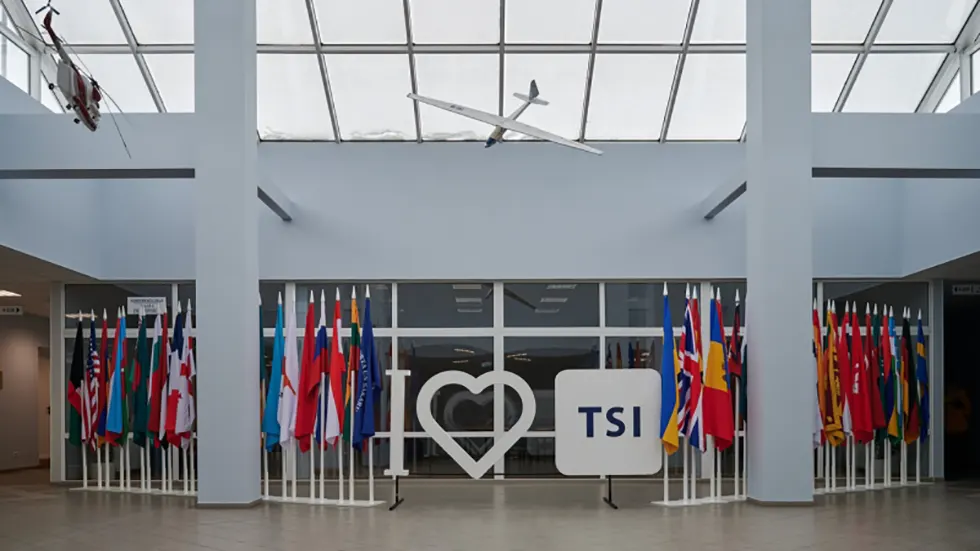McKinsey, the world’s oldest management consulting firm, predicts that in the foreseeable future of Europe, the most in-demand specializations would contain skills and knowledge, that are provided by studies in the field of natural sciences and technology. Transport and Telecommunication Institute (TSI) provides such an education, as well as gives an opportunity to the potential students to get acknowledged with study programmes and study environment, prior to the next academic year, so when beginning their studies, they know what to expect for the next several years.
As of this moment, students and graduates from more than 50 countries have chosen the education offered by the Transport and Telecommunication Institute – from nearby and more exotic countries, even from faraway Peru. Currently, the flags of countries TSI students represent are located in front of the newly equipped modern lounge zone & co-working space.
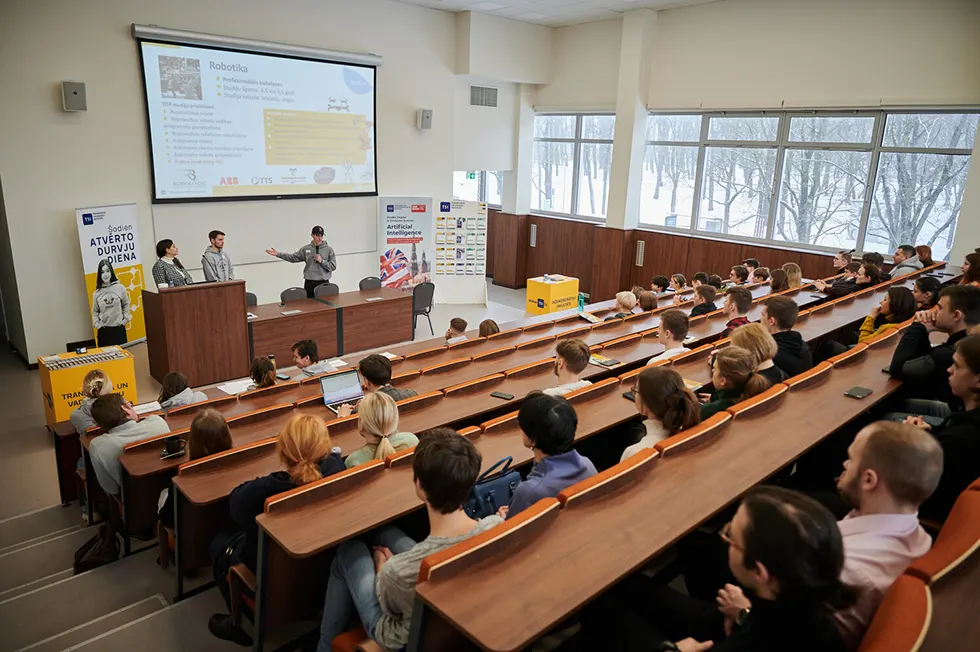
Interest in TSI Open Day was quite large. And of course, potential students were interested in what their future salary would be like, after graduation. The results of the employer research conducted by the university show that the expectations of future students correspond to the reality of the job market – they are expected to get from two and a half to almost four thousand euros per month.
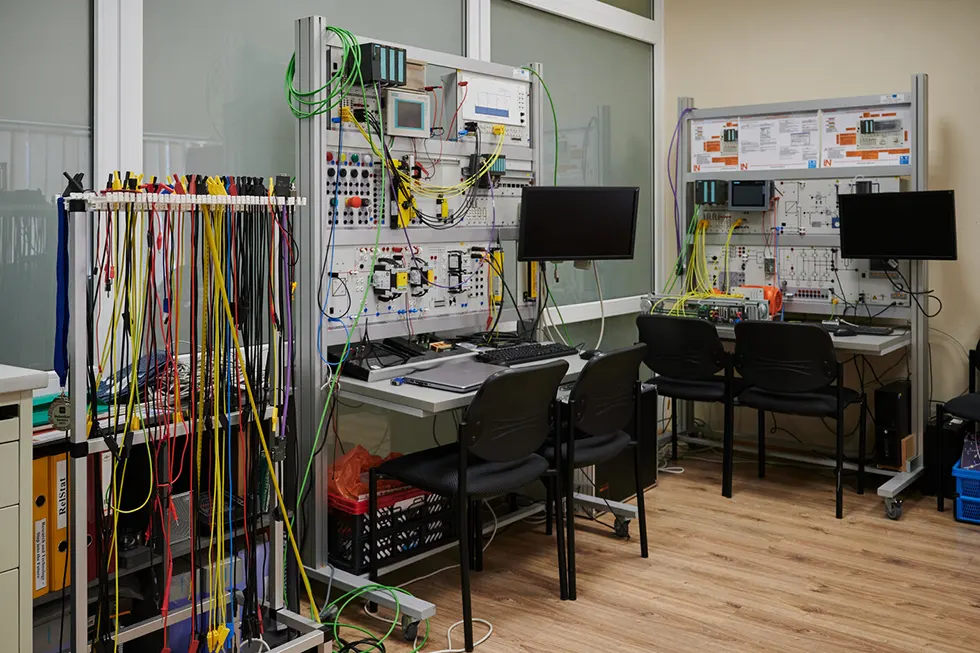
The TSI laboratory of industrial automation is equipped according to the latest industry trends. It is created for obtaining knowledge about the principles of building industrial networks and designing automation systems, as well as for researching the peculiarities of the integration of robotics devices in automated industrial lines.
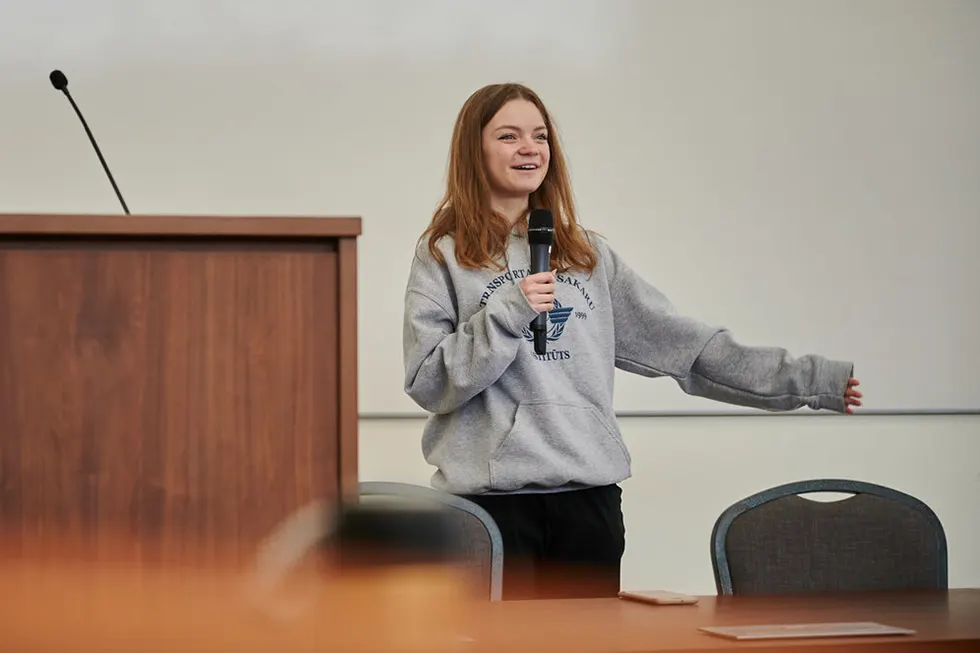
Veronika is a student from Ukraine. She started her studies in the double degree computer science program last year. The program was created in cooperation with the University of the West of England — UWE Bristol, and after graduation will receive the diplomas from both universities who are recognized in the USA, Canada, and other countries of the world.
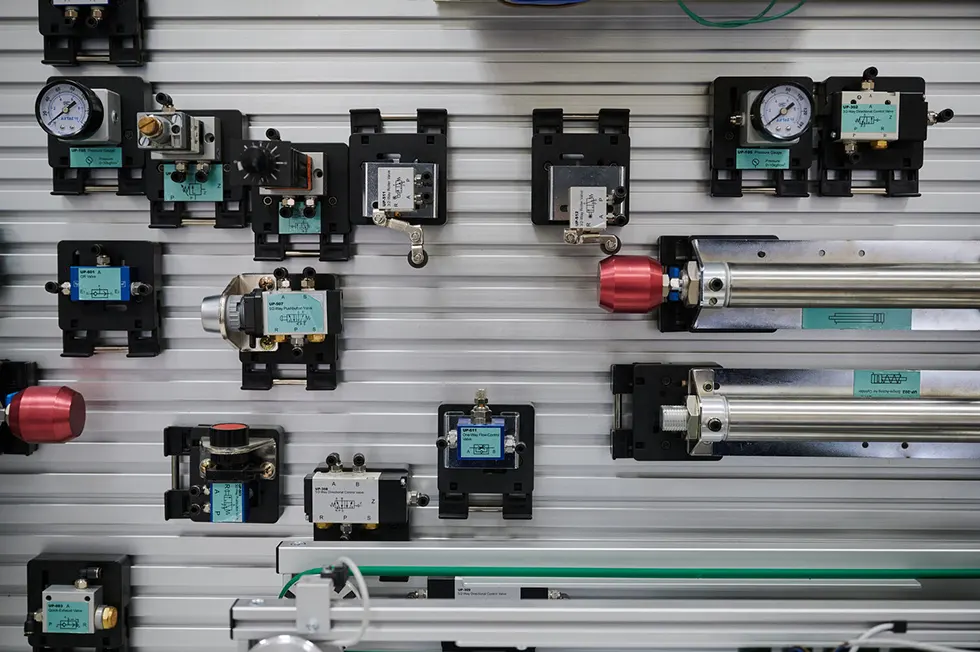
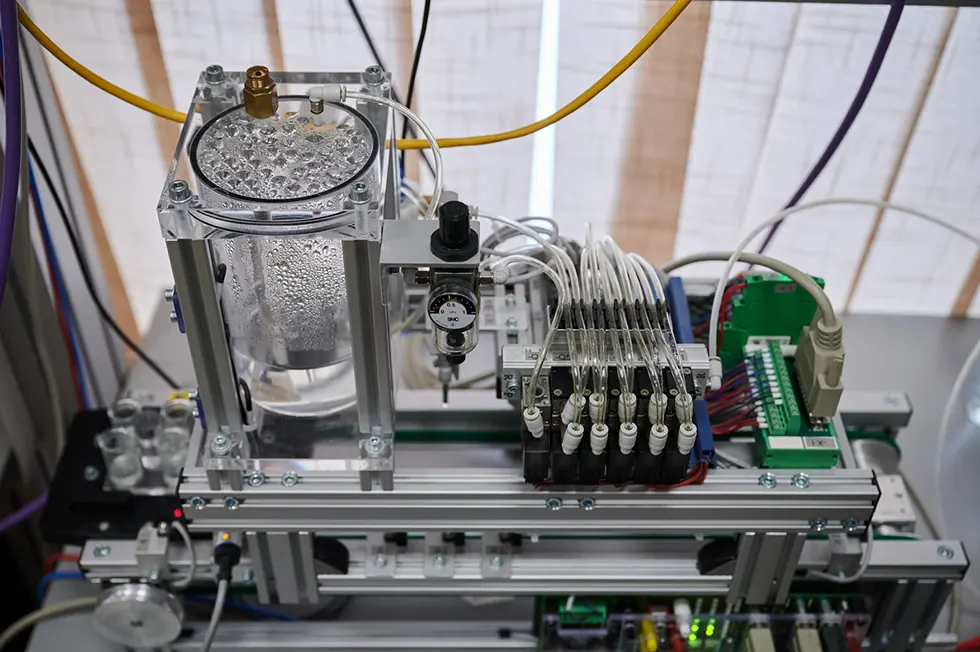
Academic staff representatives mention, that while obtaining a selected study programme, TSI students will not only have access to communication with professors, who are exceptionally professional in their industries. Students would also have access to the equipment that is the closest to the one used in manufacturing companies.
In the laboratory of mobile robots, TSI students learn the principles of robot programming, as well as how to implement and research their control algorithms. This process could even be fun – students have taught the humanoid robot NAO, for example, to play football and even to conduct a presentation during a lecture.
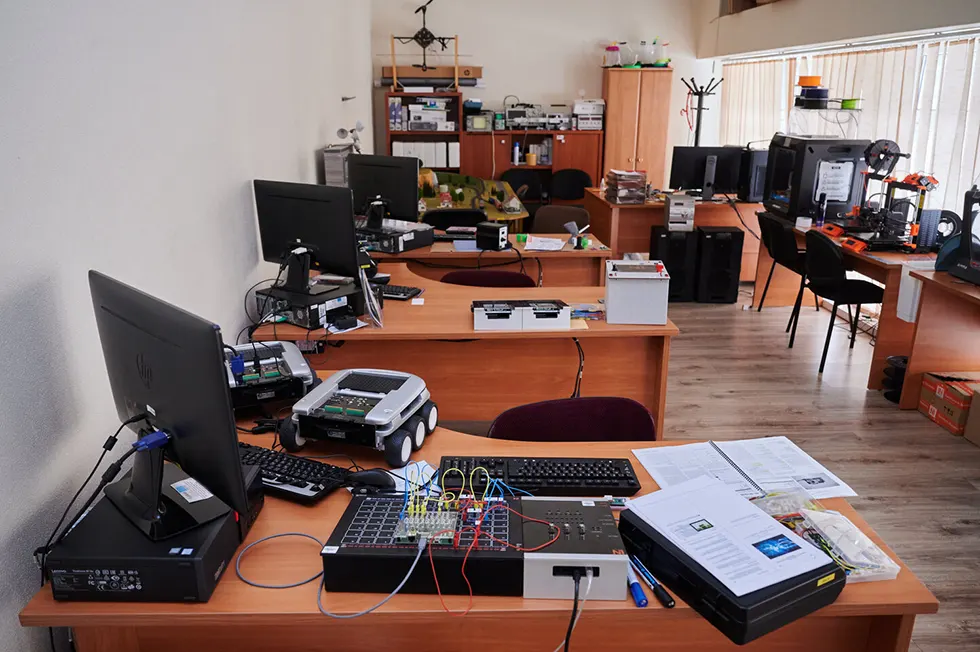
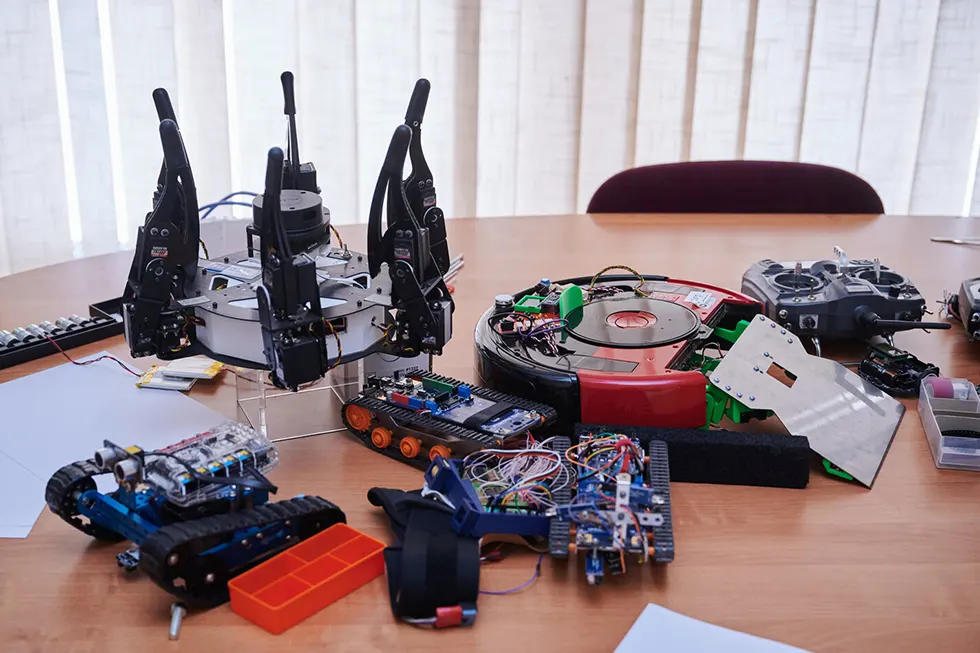
In the robotics lab, TSI students who focus on robotics also can work on their extracurricular interests, for example, they create contemporary construction robots that participate in various international robotics championships. One of the students even adapted a vacuum robot for these purposes!
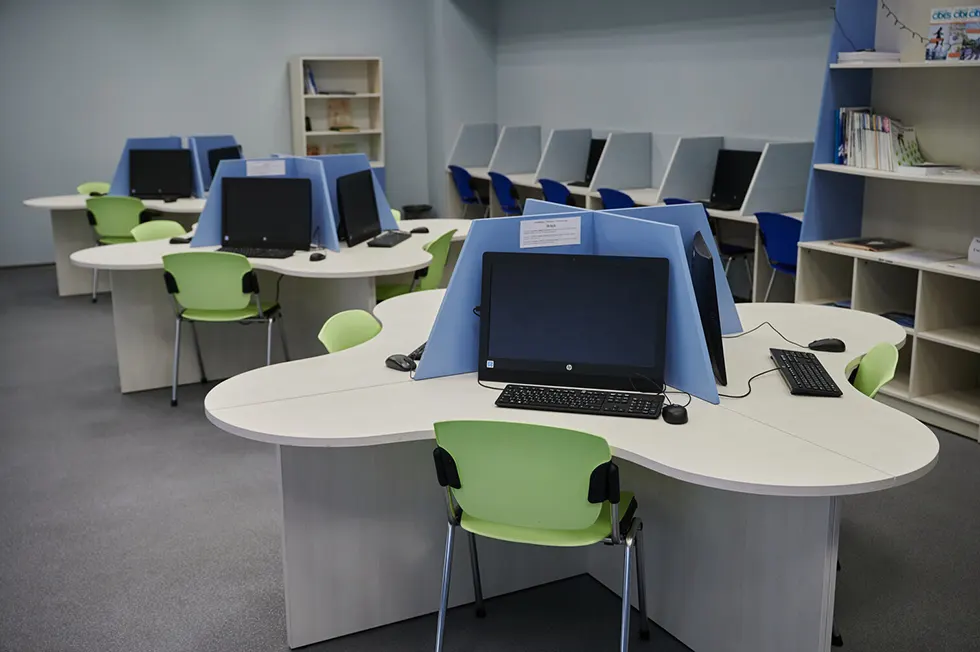
TSI is proud to be able to offer its students the largest collection of electronic books in the field of natural sciences and technology in Latvia. As one of the advantages of such types of resources is the fact that the same book can be read by several students at the same time.
3D printing has already become an everyday thing. With 3D printers and similar devices, students not only learn how to program them, but also how to print the necessary parts and details for their projects.
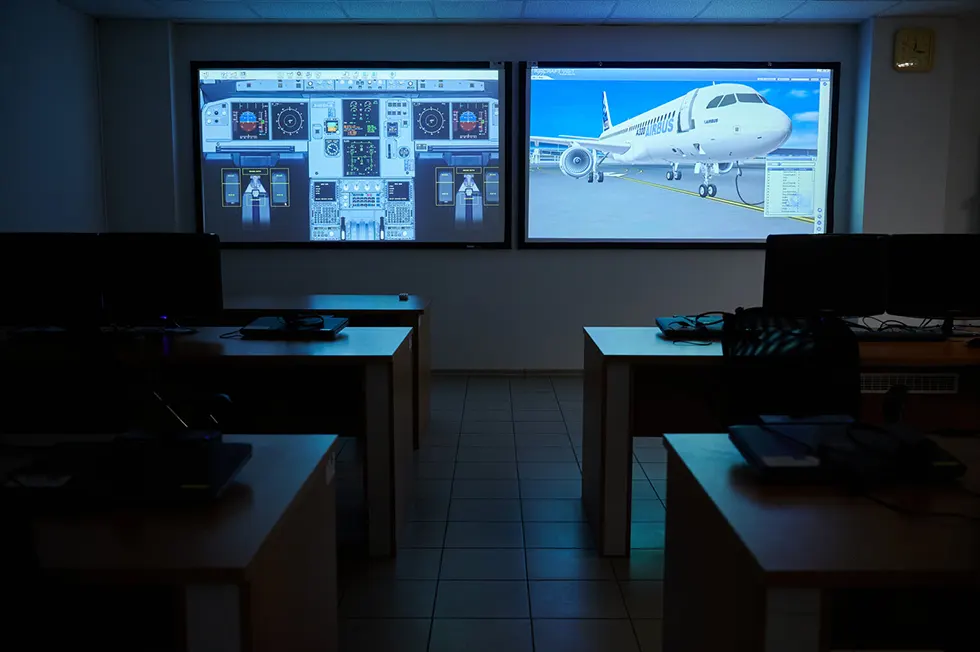
At TSI, it is possible to get a bachelor’s degree in aviation engineering and obtain a European Union Aviation Safety Agency (EASA) qualification, which will make it much easier to find a job. At the university, students have access to various aviation simulators to put the acquired theoretical knowledge into practice and one of them is the Airbus 320 simulator for electronics research.
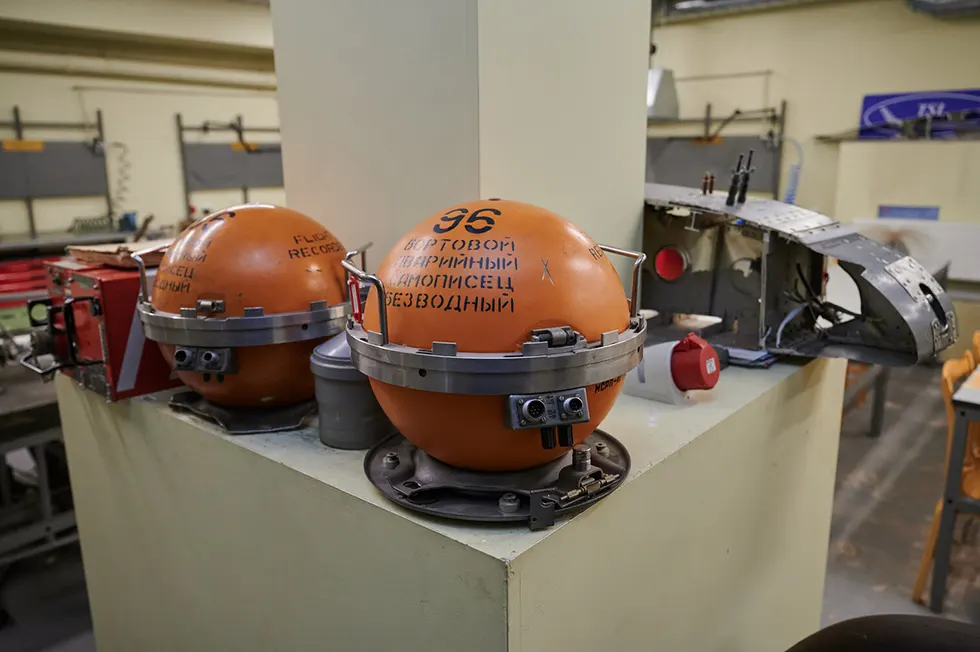
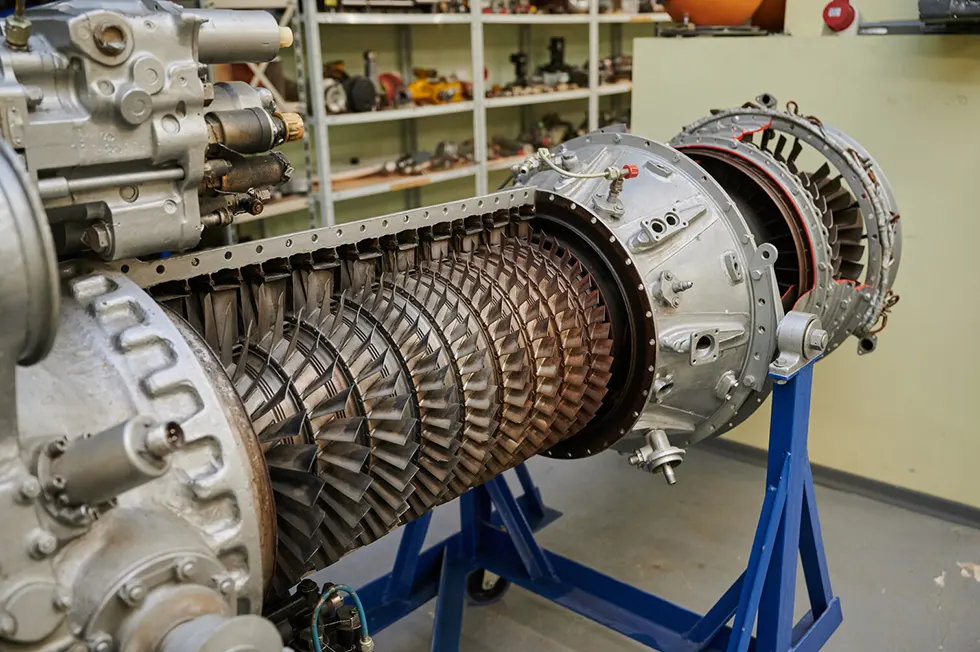
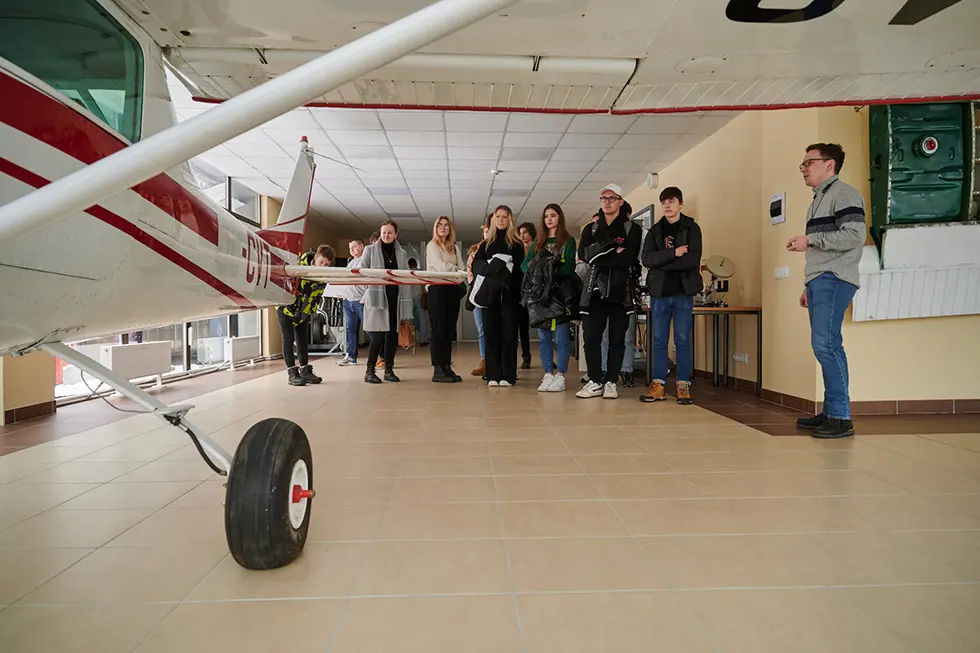
Computer simulations are not the only opportunity for future aviation engineers to acquire knowledge. They also have access to exactly real aircraft engines and other aircraft parts, the structure of which will have to be known in the future.
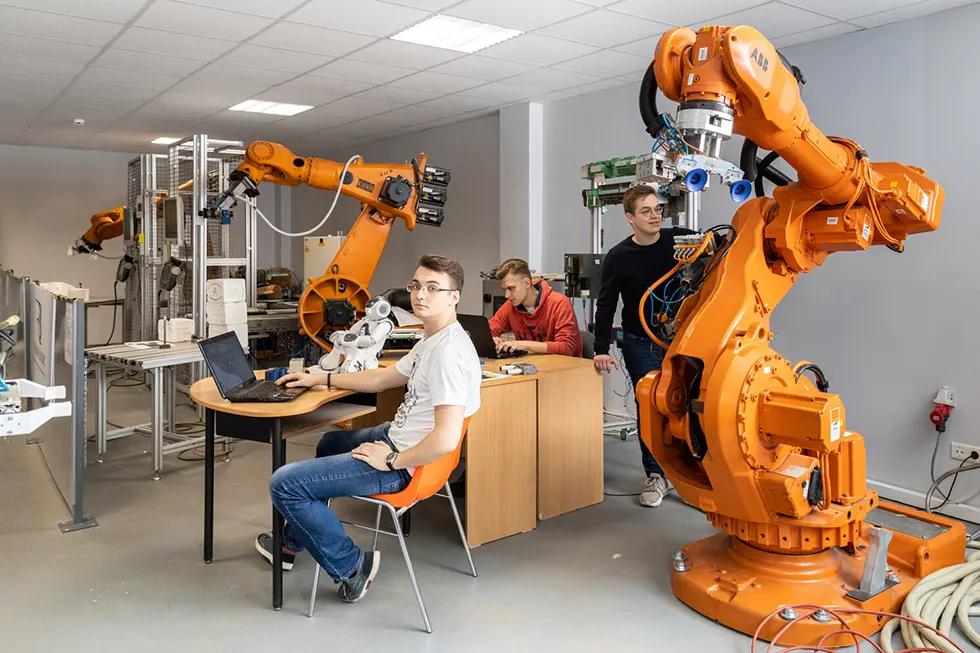
For students studying the professional bachelor’s programme in robotics, TSI has also opened an laboratory of industrial robots. It allows students to study the principles of construction, functioning, and usage of such robots in order to learn the skillset necessary to program industrial robots to complete typical tech processing operations of robotic industrial manufacturing.
https://forbesbaltics.com/en/news/article/tsi-in-demand-skillset-for-the-future
